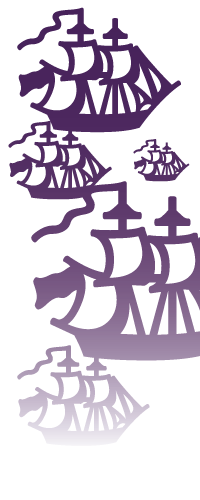USA: 401K
04 mei 2011
When you switch employers, it's important to keep your nest egg intact. Without careful attention, a variety of taxes and fees could significantly reduce your retirement savings. Before making any major career moves, be sure to take a close look at 401k vesting schedules and waiting periods. Here are seven common 401k mistakes that job-hoppers make:
Leaving before you're vested. You can always take your 401k contributions with you when you leave a job. But you won't be able to keep your employer's 401k match or profit-sharing contributions unless you are vested in the plan. About 40% of 401k plans provide immediate vesting for matching contributions, according to the ProfitSharing/401k Council of America. Most companies require you to stay with the employer for a number of years before you can keep any of the match, or allow you to keep a gradually increasing proportion of the match based on your job tenure.
"If you are choosing to leave and you are close to the end of the vesting schedule, you could be leaving money on the table," says Tom Orecchio, a certified financial planner for Modera Wealth Management in Westwood, N.J. Find out when you will become vested in the plan and consider sticking around if the date is relatively close.
Not saving during the waiting period. Only about half of companies allow new employees to contribute to their 401k immediately upon joining the company, according to an analysis of 2,200 retirement accounts administered by Vanguard. Some employers require you to wait between one and three months (25%) or even an entire year (15%).
"If you're not part of the profit-sharing or 401k plan, you do have other options such as IRA and Roth IRA accounts," says Jerry Korabik, a certified financial planner for Savant Capital Management in Rockford, Ill. Don't stop building your nest egg just because the company's official plan is closed to you.
Saving less when an employer matches less. A 401k match is a powerful incentive to save for retirement. A quarter of 401k participants choose to save exactly enough to get the maximum possible employer contribution, according to a Schwab Retirement Plan Services analysis of 911 401k plans. But simply meeting the match threshold may not be enough for a secure retirement.
"Some people only save when they are paid to save, but that shouldn't be the only reason you are doing it," says William Cuthbertson, a certified financial planner for Fiscalis Advisory in San Juan Capistrano, Calif. "People need to be saving 10% to 15% of their salary, starting at a young age." So if your new employer offers smaller matching contributions, you should make up the difference by saving more on your own.
Not saving when your employer doesn't offer a 401k. Unless you job-hop exclusively among large or particularly generous employers, you may eventually find yourself working for a company that doesn't offer retirement benefits. Only 59% of all workers were offered a pension or retirement account at work in 2009, according to an Employee Benefit Research Institute analysis of Census Bureau data. And just 45% of workers participate in these retirement plans. It's important to save something, even in years when you're not getting any help from your employer.
Cashing out your old 401k. Almost a third of retirement savers cash out their 401k when they leave or change their job, Vanguard found. Workers who cash out must pay income tax on that amount and, if they are under age 55, will face a 10% early withdrawal penalty. A worker in the 20% tax bracket who has a $3,000 401k balance would receive just $2,100 after taxes and penalties if he or she cashed out before retirement.
Fail to shop around for the best tax-deferred account. There are several ways to maintain the tax-deferredbenefits of your 401k when you leave a job. You can leave your money in your former employer's plan, roll it into an IRA or transfer your balance into your new employer's 401k plan. "You want to compare the available investment options and the costs of your current and former plan," Korabik says. Sometimes 401k plan sponsors are able to negotiate low investment fees for participants. But if the 401k plans available to you carry high fees, consider shifting your nest egg into an IRA with lower costs and more investment options.
Make rollover mistakes. Once you decide to move your money, take care to avoid taxes and penalties. Ask your former employer to transfer your savings directly to the financial institution hosting your IRA or your new employer's retirement plan. This way, you'll avoid having income tax withheld and don't have to worry about the 60-day time limit for depositing the entire balance, including the amount withheld, into a new tax-deferred account before additional taxes and penalties may be applied.
However, consider leaving behind any company stock from your former employer, which gets special tax treatment when held in that employer's 401k plan. "The primary reason you would roll it into your new company's 401k is if your new company has borrowing provisions in the 401k and you believe it is likely that you will be borrowing against your 401k balance," Orecchio says.
If you're close to retirement, it's worth noting that retirees can begin taking penalty-free 401k withdrawals at 55, while they must wait until 59/12; to take IRA withdrawals without facing the 10% early withdrawal penalty.

